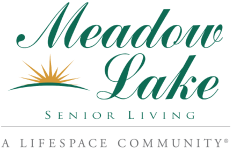
What’s the Scoop on Nutrition?
Eat more protein! Americans don’t eat enough fiber! Peanuts are a great anti-aging snack! The nutritional advice comes at us fast and furious—and sorting out fact from fiction—and what is appropriate for us can be a real challenge!
There are, however, some generally accepted truths advanced by nutritionists and gerontologists and supported by research that can help us better understand the changing nutritional needs associated with aging.
Making a Plan
According to the National Institute on Aging (NIA), planning a smart eating strategy can help keep us active and healthy longer. Making wise food choices, shopping smart, planning meals, and knowing what specific nutritional needs older adults have will make the process easier.
Factors such as our activity level and any specific dietary restrictions or nutritional needs are also important to take into consideration, and we should always discuss specifics with our doctors, a dietician, or nutritionist.
Making Every Bite Count
As we age, we need fewer calories to maintain a healthy weight and meet our nutritional needs; therefore, we must make smart food choices. According to the AARP, we burn about 200 fewer calories per day after the age of 50—and we need to modify our exercise and food intake levels accordingly to avoid gaining weight. The foods we eat should be nutritionally dense rather than “empty calories.”
For example, the NIA recommends carrots instead of salty, processed snack foods, fresh fruit rather than processed fruit products with added sugars, whole grains, and healthy cooking oils, such as olive oil. Similarly, high-sugar, high-fat beverages should be replaced by naturally flavored waters and skim milk-based coffees.
Protein and Sarcopenia
Research indicates that sarcopenia, or age-related decrease in muscle mass and strength, can begin around age 50 and accelerate after age 65. Eating enough protein—and including resistance training in your exercise routine—can help offset and even reverse the effects of sarcopenia.
Geriatric medicine specialist and Harvard Medical School professor Christine Ritchie explains that older adults need “proportionately more protein in their diets than they did when they were younger.” Dr. Ritchie recommends eating lean protein at every meal to maximize benefits to the body. There is some discussion among researchers about exactly how much protein is needed, so check with your doctor to determine the right amount for you.
Getting Enough Fiber
Fiber is a plant-based dietary material, sometimes referred to as roughage, that doesn’t break down during digestion. Fiber is an important dietary component at every age, but it becomes an even more critical part of our diets when we are seniors. Adding whole grains, fresh fruits and veggies, and legumes, such as chick peas, beans, and peanuts will help us get enough of both types of fiber: soluble (dissolves) and insoluble (doesn’t dissolve).
According to the Cleveland Clinic, the benefits of sufficient fiber consumption go well beyond digestion and colon cancer prevention to include heart health, protection against other forms of cancer, longevity, and healthy weight management.
Helpful Hints
We can certainly identify distinct changes in the nutritional needs of older adults; however, there is no substitute for getting personalized, professional advice from our own doctor. Here are some additional nonbiased resources to help you ask the right questions of professionals and be better prepared to understand and follow their advice.
- The National Institute on Aging offers information on meal planning specifically for seniors, explores different eating patterns (such as the Mediterranean diet and vegetarian options), and provides recipes.
https://www.nia.nih.gov/health/healthy-meal-planning-tips-older-adults
- The US Department of Agriculture provides a wealth of nutritional information for older adults, including fact sheets and senior meal delivery.
https://www.nutrition.gov/topics/food-assistance-programs/nutrition-programs-seniors
- Harvard Medical School/Harvard Health has information in the form of articles and blogs with specifics on inflammation, eating for seniors, and supplements as well as a search engine to take you to specific topics of interest.
https://www.health.harvard.edu/
- MyFitnessPal is a free app and website that helps you track both exercise and diet/calories and offers community discussion groups, blogs, and articles.
